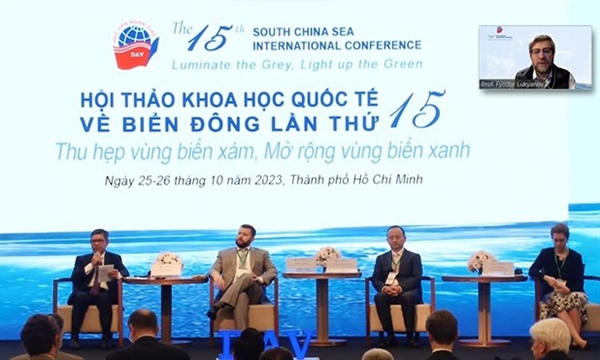
Scholars discuss at the Workshop
In his opening speech, Deputy Foreign Minister Do Hung Viet stated that over the past 15 years, the series of seminars on the East Sea has created opportunities for regional and international experts to meet and exchange frankly and friendly to enhance common understanding and narrow differences; he hoped that in the coming time, this dialogue would continue to become an important, open, inclusive and creative regional maritime security forum.
Deputy Minister Do Hung Viet said that the global focus is currently continuing to shift to the Indo-Pacific region, which has become the "center" of global growth and an important locomotive for global recovery and future prosperity. But that future cannot be guaranteed without peace and sustainable stability in general and in the regional maritime space in particular. Currently, strategic competition is creating "great divisions" and "great cracks" as assessed by UN Secretary-General Guterres. Conflicts are taking place in many regions of the world ; in the maritime space in the Indo-Pacific, the risk of confrontation and conflict is inevitable. That situation forces us to continuously identify potential threats at sea, review existing cooperation mechanisms to address emerging challenges and act together to prevent those threats.
Compared to 15 years ago, the situation in the East Sea has become more complicated, with many new “gray areas” emerging that need to be clarified. In addition, the East Sea is still an area that offers many potential opportunities for cooperation. Notably, the new Agreement on the Conservation and Sustainable Use of Biodiversity in Areas Beyond National Jurisdiction is evidence that countries have a common interest in the sea. Vietnam is proud to be one of the first signatories. In that context, the Deputy Minister highly appreciated the choice of the theme of the Workshop; emphasizing that only through cooperation can we help the East Sea change its color from “gray” to “green”, towards peace and sustainable development. To do that, it is important to respect and comply with the international Law of the Sea, as reflected in the 1982 United Nations Convention on the Law of the Sea (UNCLOS 1982).
Over the past time, Vietnam and ASEAN countries have always strived towards a regional order, including a stable, rule-based maritime space. Vietnam strongly supports the realization and effective implementation of the ASEAN Outlook on the Indo-Pacific and the Vision for Maritime Cooperation recently adopted by ASEAN. At the same time, Vietnam always supports new initiatives for common goals, through bilateral, multilateral and new mechanisms.
Speaking at the Workshop, Mr. Martin Thümmel, Commissioner for East Asia, Southeast Asia and the Pacific, Federal Foreign Office of Germany, expressed concern about the recent escalation of tensions in the East Sea, especially the incident in which Chinese coast guard and maritime militia vessels collided with Philippine vessels in the Philippines' exclusive economic zone (EEZ) on October 22, 2023. Mr. Thümmel reiterated the need for full compliance with the 1982 United Nations Convention on the Law of the Sea (UNCLOS) and the 2016 Award of the Arbitral Tribunal established under Annex VII of UNCLOS on the South China Sea Case between the Philippines and China to ensure prosperity and shape a regional order based on international law that requires the cooperation of countries in the region.
Delegates also said that 15 years ago, there was not much attention from the international community, the East Sea was considered a bilateral dispute between countries in the region, and countries did not pay much attention to conflict management measures. However, in recent years, the East Sea issue has appeared many new factors and aspects. The dispute continues to be tense because China does not recognize the Ruling, continues to enforce the nine-dash line claim and has recently announced it as a broken line; there are many "gray zone" activities at sea including the participation of carefully prepared parties, using advanced equipment such as modern ships, satellites, and drones to record and publish information that is beneficial to them. The East Sea is now considered an international issue, with more risks of conflict and if a conflict does occur, it will easily escalate and expand. At the same time, countries are more interested in promoting dispute management measures such as the process of building a Code of Conduct of Parties in the East Sea (COC) which is making some positive progress. However, there are still some controversial issues in the COC negotiations such as scope of application, legal effect, enforcement mechanism, role of third parties, etc. The above new aspects and factors make the East Sea issue increasingly receive attention from both the international and regional communities, in the context of that role, the position of the East Sea in the global economic and strategic competition and in the Indo-Pacific is increasing.
PEACEFUL
Source


![[Photo] Panorama of the Opening Ceremony of the 43rd Nhan Dan Newspaper National Table Tennis Championship](https://vphoto.vietnam.vn/thumb/1200x675/vietnam/resource/IMAGE/2025/5/19/5e22950340b941309280448198bcf1d9)
![[Photo] General Secretary To Lam attends the conference to review 10 years of implementing Directive No. 05 of the Politburo and evaluate the results of implementing Regulation No. 09 of the Central Public Security Party Committee.](https://vphoto.vietnam.vn/thumb/1200x675/vietnam/resource/IMAGE/2025/5/19/2f44458c655a4403acd7929dbbfa5039)
![[Photo] President Luong Cuong presents the 40-year Party membership badge to Chief of the Office of the President Le Khanh Hai](https://vphoto.vietnam.vn/thumb/1200x675/vietnam/resource/IMAGE/2025/5/19/a22bc55dd7bf4a2ab7e3958d32282c15)
![[Photo] Close-up of Tang Long Bridge, Thu Duc City after repairing rutting](https://vphoto.vietnam.vn/thumb/1200x675/vietnam/resource/IMAGE/2025/5/19/086736d9d11f43198f5bd8d78df9bd41)


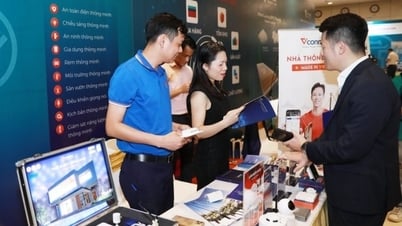

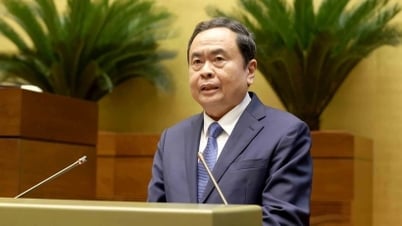
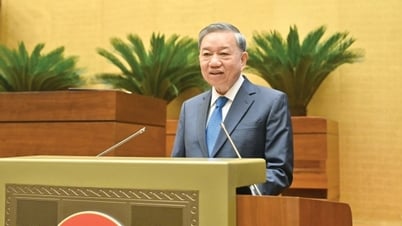
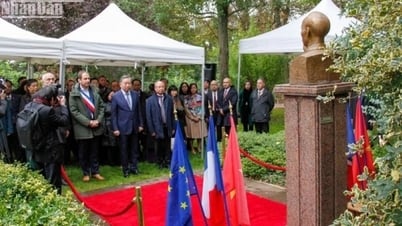

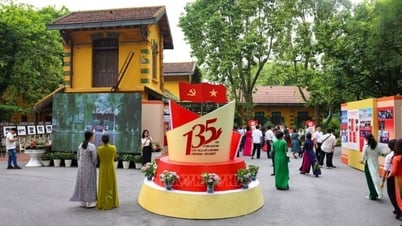








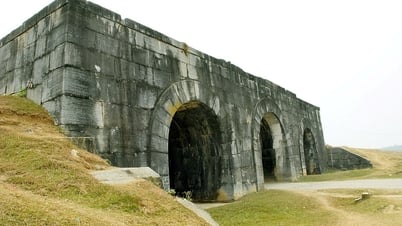
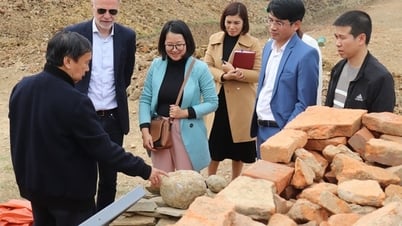
![[Photo] Prime Minister Pham Minh Chinh inspects the progress of the National Exhibition and Fair Center project](https://vphoto.vietnam.vn/thumb/1200x675/vietnam/resource/IMAGE/2025/5/19/35189ac8807140d897ad2b7d2583fbae)














































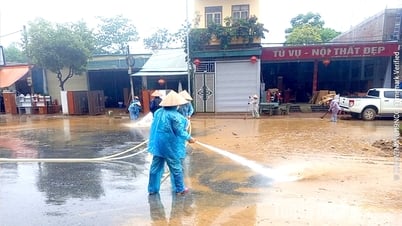

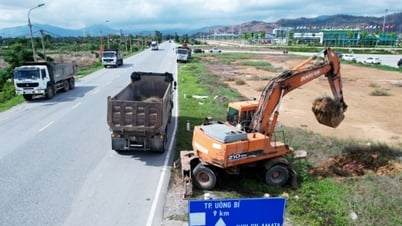

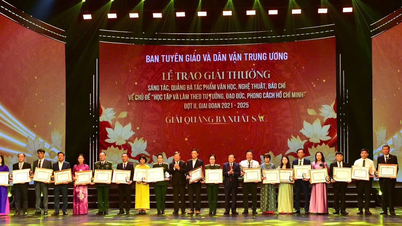







![[VIDEO] - Enhancing the value of Quang Nam OCOP products through trade connections](https://vphoto.vietnam.vn/thumb/402x226/vietnam/resource/IMAGE/2025/5/17/5be5b5fff1f14914986fad159097a677)



Comment (0)